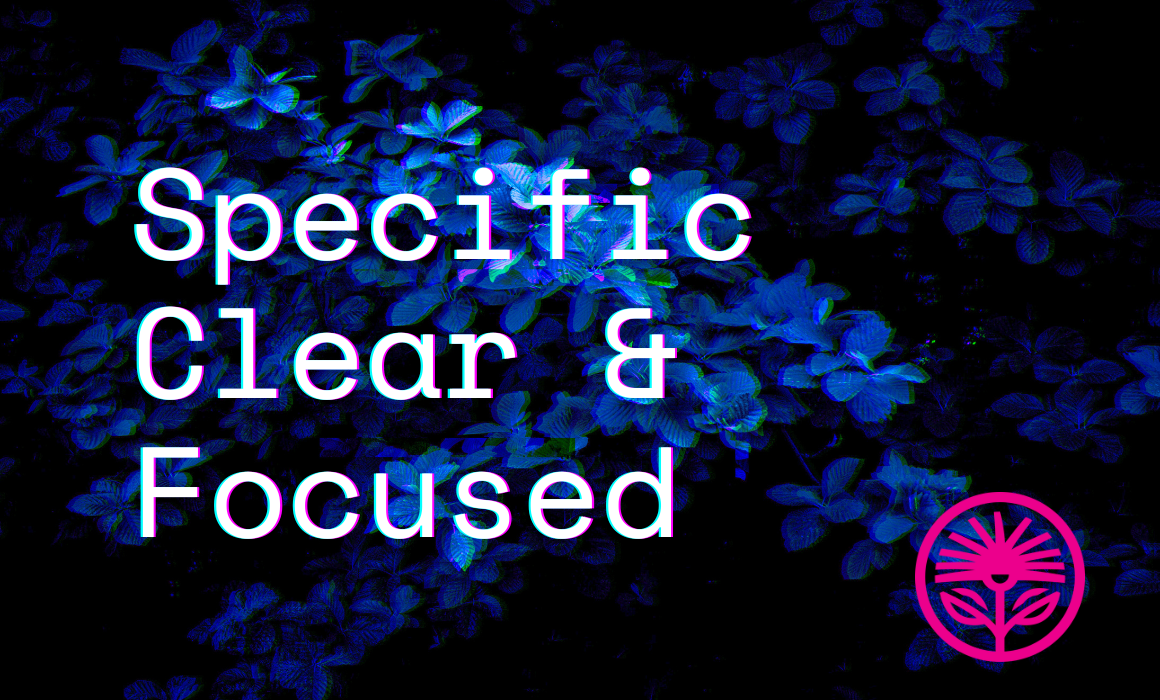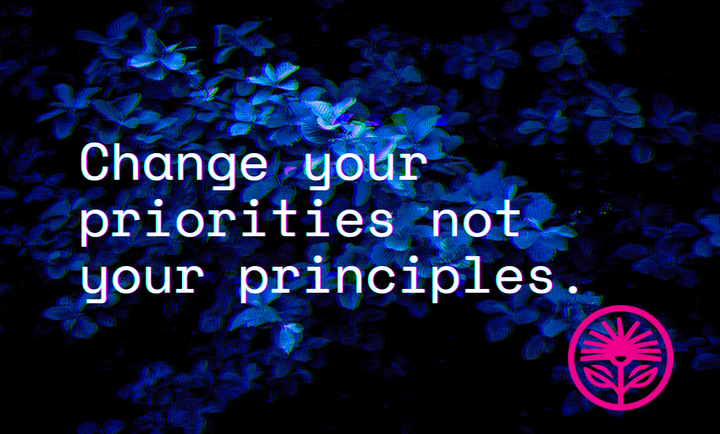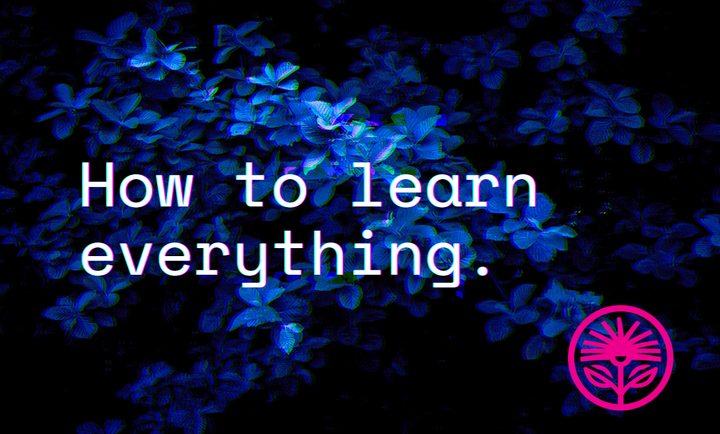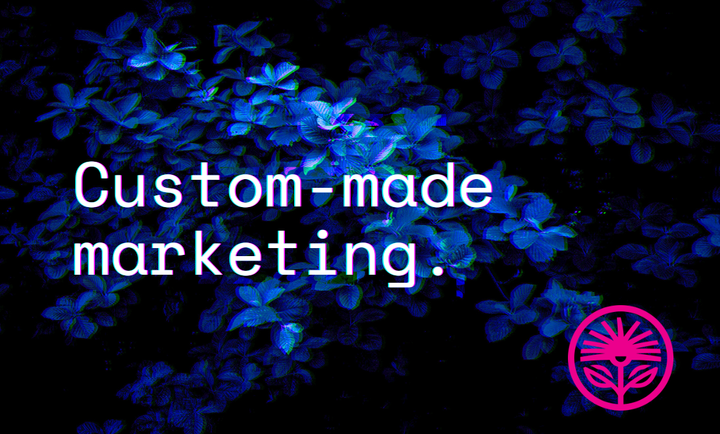Kelford Labs Weekly: Specific, Clear, and Focused Value
Articulating your value for your very best customers.

Writing compelling marketing messages—the kind that get noticed and demonstrate value at a distance—is a creative act.
Of course, creating, building, and growing a business is an intensely creative endeavour, too, but it can feel like a different type of creativity than, say, writing the introduction copy on your website.
But I’m here to tell you that if you can do the former you can do the latter.
Today (and next week), I’m going to take you through one way of looking at writing marketing messages that will, I hope, make it easier, less intimidating, and much, much faster.
Defining Value
The first part of communicating—demonstrating—value is, of course, to define and articulate it.
What is the actual value you’re trying to communicate to your ideal buyers? Why should they buy from you and not from someone else—or not at all?
The key here, in my opinion, is to find a way to understand and express your value that is:
a) Specific
b) Clear
c) Focused
You need to know, specifically, who you’re targeting, what problem they have, and how you’re able to uniquely help them.
You need your messages to be clear, obviously targeted at the right person, and extremely easy to comprehend and remember.
And you need your unique solution to be focused on that ideal buyer and the preferences and values you share with them.
To put it crassly, people want to buy from companies they like, and they like companies they agree with, and they agree with companies they understand.
Who?
Okay, so how do you do that?
Well, let’s start at the beginning, with our target buyer. Over the years, I’ve found these questions particularly helpful when figuring out what makes our ideal clients tick:
What job or role do my most common, best clients share?
Are they all senior managers? Entrepreneurs/owners? C-Suite? Are they technical operators or in more abstract positions?
Who would still find my business—and happily buy from it—even if I could never actually do any marketing?
Who’s looking for you now? Who out there needs exactly what it is you sell—or at least the type of thing you provide?
What personality traits do my best clients all seem to have?
Are they ambitious, or cautious? Are they all about details or the big picture? What decisions do they like making, and what kind of preferences do they share?
If I answer these questions myself, I get these answers:
The most common role or job my clients share is mid-career entrepreneurs.
The clients who would find me without doing any marketing myself would be entrepreneurs who’ve been referred by others based on our reputation for making marketing messages that lower sales costs and effort.
And the personality trait they all share is that they want to lead or control their marketing themselves—they don’t want hand it over to a third-party who will give them generic services they provide to everyone else.
So, in sum:
Specific: Mid-career entrepreneurs
Clear: Looking for more effective marketing messages
Focused: Who want to control or lead their marketing themselves
Now, write down your answers and hold on to them as we move on to the next step.
What?
Next, we want to articulate their challenge, problem, or opportunity using the same structure of specificity, clarity, and focus.
Here are three questions you can ask yourself (with my own answers as reference) to help you along:
What similar products or services are your ideal clients buying now (or creating on their own)?
What is it that they’re in the market for? And how do you know that based on what they’re currently shopping for or buying?
My answer: Copywriting, social media implementation, and advertising design services.
How do they know they got what they paid for?
To these buyers in particular, how do they measure value or return on investment? How will they know it was worth buying?
My answer: They can keep using what they bought for years to come—it doesn’t expire after two weeks or two months of use (or disuse).
What would surprise them most about working with you, compared to your competition?
What sets you apart and gives the buyer an opportunity to make a decision when purchasing? What is unique about you that your competition doesn’t offer or provide or do?
My answer: We don’t do the implementation for you, we just show you how (and what to say).
So, we now have:
Specific: Marketing message design
Clear: That works and keeps working for the long-term
Focused: That they can implement and measure themselves
How?
Okay, now, what do you actually do that sets you apart and helps your ideal clients better than anyone else could?
Here are three more questions for you, and my own answers:
Of all the things you might sell or provide, which single one, if removed, would eliminate the most value?
Which brick is holding up the whole operation? Which service is the one people are really buying? Don’t think about what you want to be true—really dig into what is true about your current business and its customers.
My answer: Value proposition articulation.
How do your friends describe your business or industry?
What bucket do people put your business in? How would it be explained in just a few words—one sentence or less? This isn’t what you say your business is or does, it’s about what other people say.
My Answer: They’re marketers who also write and teach.
What unique resource do you provide that your customers couldn’t buy anywhere else?
Other people might sell the same things you sell. So what is it they’re getting from you—even if it’s abstract, sentimental, or emotional—they don’t get from anyone else?
My answer: The ability to not just do marketing, but to understand, control, and improve it.
Specific: A clear value proposition
Clear: So you can create marketing messages that lower your cost of sale and save you time and energy
Focused: And you can improve your marketing capabilities at the same time
Now What?
Okay, so if we put all of this together, for my own answers, I’d get a value proposition like this:
If you’re a mid-career entrepreneur who wants more effective, efficient marketing that you can deploy yourself and evolve over time (WHO), we’ll help you design a value proposition and marketing messages (WHAT) that work for the long-term and save you time, effort, and money—while extending your own capabilities. (HOW)
Now, something like that is not a marketing message itself.
It’s more like an internal guide, a framework from which to build your creative messages. It gives you a foundation, a purpose, and a sentiment you want to infuse into every touchpoint with your ideal buyers.
All it is—which is still a lot—is the answer to the question: What value would you deliver if I worked with you?
It’s the job of carefully crafted, compelling marketing messages to demonstrate that value at a distance.
But start here: Using these questions, try your hand at defining and articulating your value proposition.
WHO:
1) What job or role do your most common, best clients share?
2) Who would still find your business—and happily buy from it—even if you could never actually do any marketing?
3) What personality traits do they all seem to have?
WHAT:
4) What similar products or services are your ideal clients buying now (or creating on their own)?
5) How do they know they got what they paid for?
6) What would surprise them most about working with you, compared to your competition?
HOW:
7) Of all the things you might sell or provide, which single one, if removed, would eliminate the most value?
8) How do your friends describe your business or industry?
9) What unique resource do you provide that your customers couldn’t buy anywhere else?
Next week, we’ll talk all about how to turn your value proposition into marketing messages that demonstrate your unique value at a distance—that are specific, clear, and focused on what you do best.
And what your best clients care most about.



